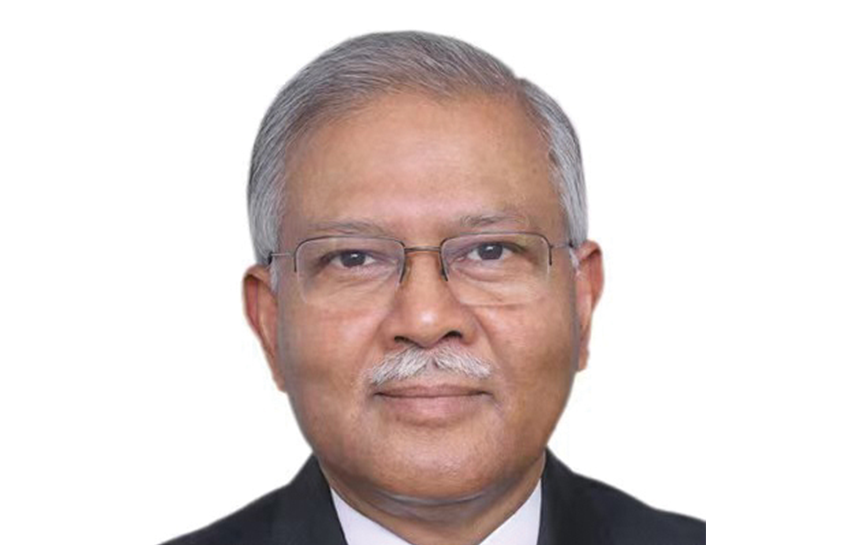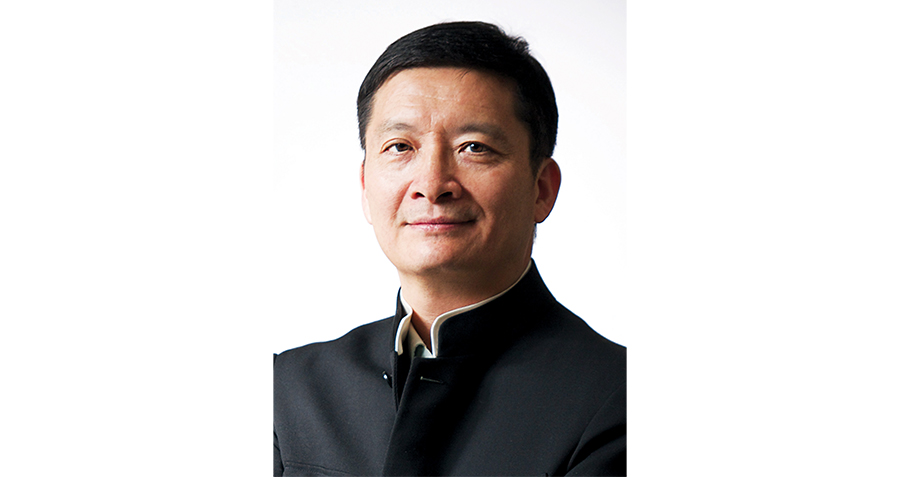Semiconductor chips have been referred to by a number of experts as the oil of the 21st century, and the recent chip shortage during the pandemic highlighted the centrality of these electronic wafers to the functioning of the global economy. Pretty much anything with an on-off switch contains a semiconductor of some kind, and almost all of the most advanced chips are produced by just one company—Taiwan Semiconductor Manufacturing Company (TSMC).
Thanks to the integral role they play in advanced technologies, especially military tech, control over the production of chips has naturally become a geopolitical battleground, with the US imposing strict rules governing China’s access to chips and chipmaking capability. In this interview, Chris Miller, author of Chip War, discusses the impact of the US’ restrictions on China’s ability to produce chips, the monopolies present in global chip production and the knock-on effects of the battle over semiconductors.
Q. What is the role of semiconductors in life and the global economy and how did we come to be in this situation?
A. The typical person relies on hundreds or even thousands of semiconductors every day, even though most of us hardly ever see a chip. And they are, as a result, one of the most critical devices to all of the goods we rely on, whether that be automobiles or dishwashers and certainly computers and smartphones. So they’re absolutely fundamental to the operation of the global economy, but the production of them is controlled by a small number of companies and countries. And as a result, the supply chain for producing semiconductors is one of the most critical in the entire world.
Q. Your book is titled Chip War. In summary, what is the war about, who are the main combatants and what are the knock-on effects?
A. There are different aspects to the competition. There is competition between the types of technology to produce the most advanced systems, with companies competing for market share and dominance in the key technologies. And then there is competition between countries as well, because the semiconductor has major geopolitical importance, given its use, not only in all of the economic aspects I mentioned before, but also for defense systems, because military equipment today is more reliant on computing power and therefore on semiconductors than ever before.
Q. And have there been knock-on effects on consumer-based products as well?
A. Certainly, it’s absolutely critical to have semiconductors for all sorts of consumer devices. And it’s not only the things you think of as having computing power, like dishwashers or smartphones and PCs, but also any number of household appliances—basically, any device with an on-off switch has some number of semiconductors inside.
Q. Who are the main players in the production and development of microchips?
A. The biggest players today are Taiwan and South Korea in terms of the production of semiconductors. But it is a bit more complex than that, because Taiwan and South Korea rely on very complex supply chains that stretch across Japan, the United States and Europe as well. This means that in reality, no country is self-sufficient in the production of advanced chips, and everyone relies on the ability to source materials and ultra-specialized chip making tools from key countries. And those key countries include not only the producers of chips like Taiwan and South Korea, but also Japan and the US and the Netherlands which produce some of the key equipment involved.
Q. What has been the impact of the chip war and where do we find ourselves now?
A. Around the world there has been an increasing understanding over the past couple of years, particularly thanks to the pandemic, of the extent to which semiconductors define the modern economy and are critical to its operation. This has been demonstrated by the supply chain crises for semiconductors that we’ve seen. And as people begin to look more at the way supply chains are structured, the extent to which they rely on a small number of key companies, has raised questions about their security, especially in times of geopolitical crisis.
And so I think the fact that Taiwan is the producer of most of the world’s most advanced processor chips, as well as many of the world’s semiconductors, is a matter of some concern, given the escalating geopolitical tensions across the Taiwan Strait.
The second aspect is the extent to which semiconductors are critical for military weapons, because although most semiconductors go into consumer devices, today, more than ever before, defense relies on automation and computing power. So there’s a direct relationship between the ability to produce the most advanced semiconductors, and the ability to field the most advanced military equipment. And that’s why the US is trying to restrict access to some of the most critical chips and chip-making tools, because it wants to ensure that only it and its allies have access to the computing power that these chips produce.
Q. You, among others, have called semiconductors the oil of the 21st century, but it could be argued that semiconductors are limited by knowledge rather than access. To what degree do you think this is true?
A. What is interesting with the oil comparison is that the production of chips is actually much more concentrated than the production of oil. If you look at the oil industry, Saudi Arabia, which is arguably the most influential player in the oil market, produces less than 15% of the world’s oil. Whereas in semiconductors, Taiwan produces 90% of the world’s most advanced processor chips and the Dutch company ASML produces 100% of the advanced lithography machines needed to make chips.
Additionally, the knowledge and expertise in chipmaking is also much more concentrated than in the oil industry, so that has made semiconductors a device that has been subject to political influence in terms of how supply chains are structured. And that’s why the US thinks that because the key tools to make advanced chips are produced by companies in the US, Japan and the Netherlands, and that many of the most advanced chips are designed in the US, that it has a fair amount of ability to control access to both chips and chip-making machines.
Q. How do you think we ended up at a point where there are such significant monopolies in the semiconductor supply chain?
A. I think there are two main reasons. One is that the amount of capital investment necessary in the chip industry is extraordinarily large, and it just doesn’t make sense for many countries to try to compete for these markets, because you need to spend so much money. Second is that it takes a long time and a lot of accumulated expertise to develop the capabilities that we’re talking about. And so once one company has developed capabilities, they’ve got a really strong advantage. In both the machine tool space and the fabrication space, there is a really substantial impact of being the first mover to the market, and having that technological advantage is hard to overcome.
Q. What chance do you think China has in developing to a point where it can produce some of the more advanced chips?
A. I think China is already a big player in terms of lower-tech chips, and it’s made real strides in the past couple of years in catching up in certain spheres. It’s still quite reliant on others overall, but in certain aspects of the chip industry it has to some extent caught up. But in the short run, the recent export controls that the US has imposed will be really tough for China to get around. Both because of the complexity of the machines that have been restricted and also the extent to which it will no longer be possible to produce certain types of chips for China in Taiwan’s advanced facilities. In the longer run, it’s harder to say, because it’s difficult to predict how Chinese policy and US policy will both evolve. I would be hesitant to make predictions for over a decade’s time, but I think we’re talking about a period of at least multiple years before China can make meaningful progress in finding alternative sources of supply for some of these critical machine tools.
Q. What do you think China’s options are in terms of supply chain diversification?
A. It is really quite tricky. China can try to build alternative systems domestically, but the challenge in doing so is that in some of the areas, it doesn’t have the accumulated expertise that competitors have built up over decades. The domestic Chinese market is also a lot smaller than the global chipmaking market. So any efforts to replicate the existing international supply chain domestically is going to be a very expensive proposition for China. And it might not work. This is the real risk. In trying to achieve self-sufficiency, China has to spend a lot of money over a long-time horizon with no real guarantee of success.
It would be much easier for China to try to find ways to retain access to the international chip supply chain. And the challenge right now for policymakers in Beijing, is that their foreign policy doesn’t line up with the optimal situation for China’s tech sector. Foreign policy and military modernization goals are in the foreground and the tech sector is taking a backseat in terms of its influence on the political elite in Beijing. This will create real challenges for the Chinese tech sector, and even if you assume that will get a fair amount of financial support from the government, it is still going to be quite difficult for them to find alternatives.
Q. How do you see the semiconductor industry developing over the next five to 10 years?
A. For the foreseeable future, we will all be relying on silicon chips for all the tech we use and for the functioning of the world economy. But I would say, that the biggest change that’s coming will be that a number of other countries, like Europe, the US and Japan, invest more and more in trying to build up their own chip industries. And so I think we are going to see some diversification in terms of the geography of chipmaking. And also a reduction in Taiwan’s absolutely central role, although I still think that in five or 10 years’ time, Taiwan will still play a pretty critical role in the world’s chipmaking.
Interview by Patrick Body


















